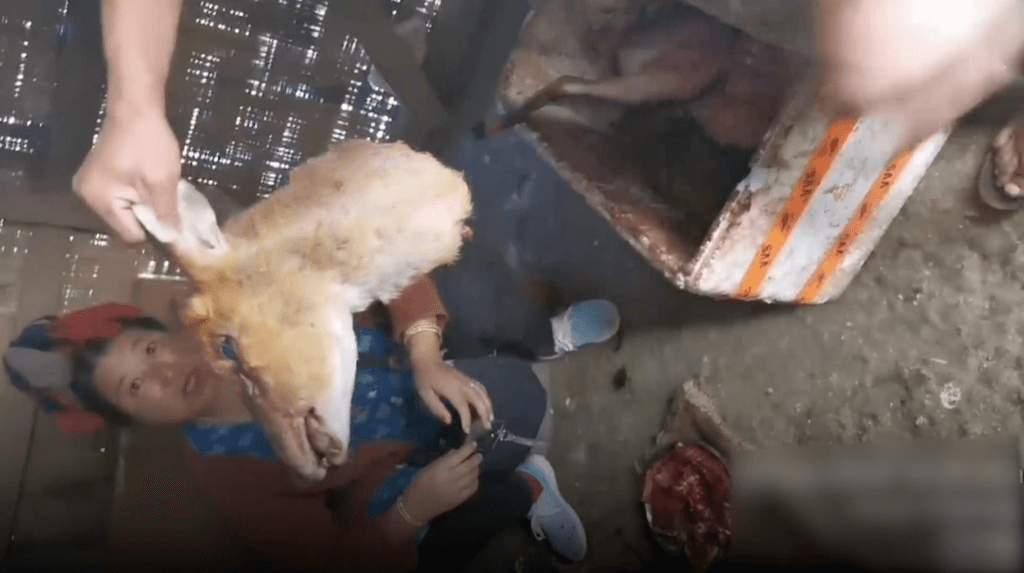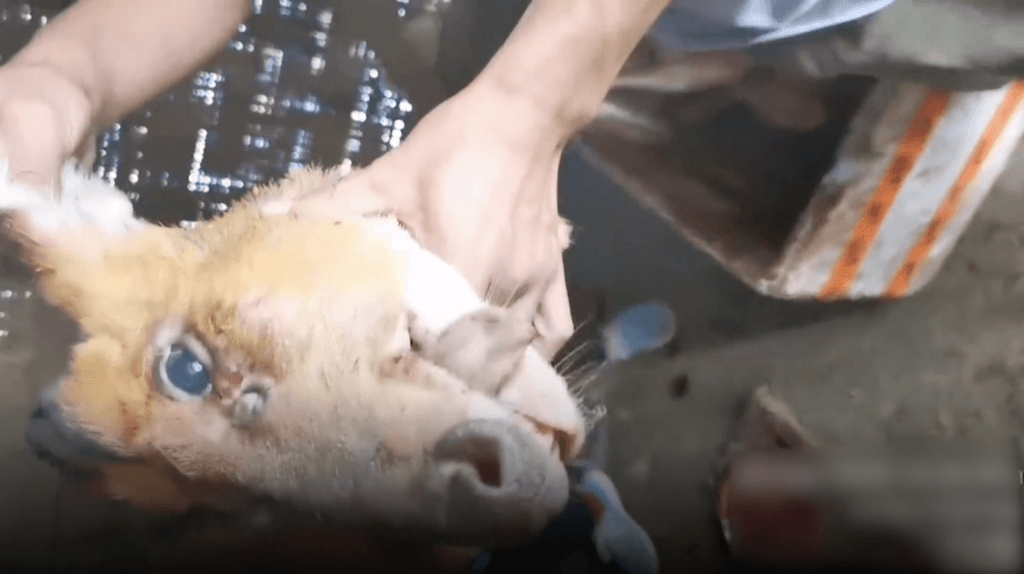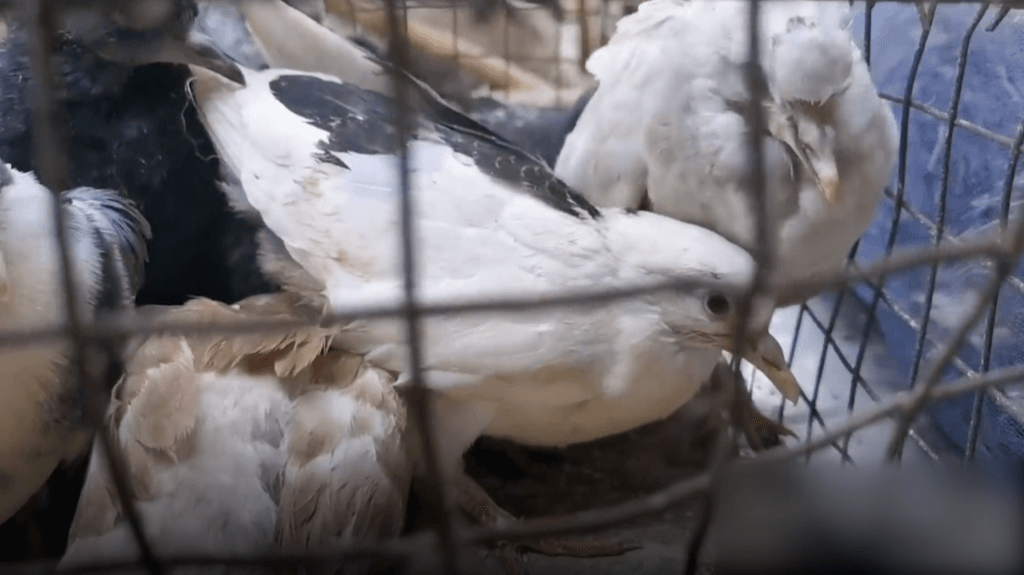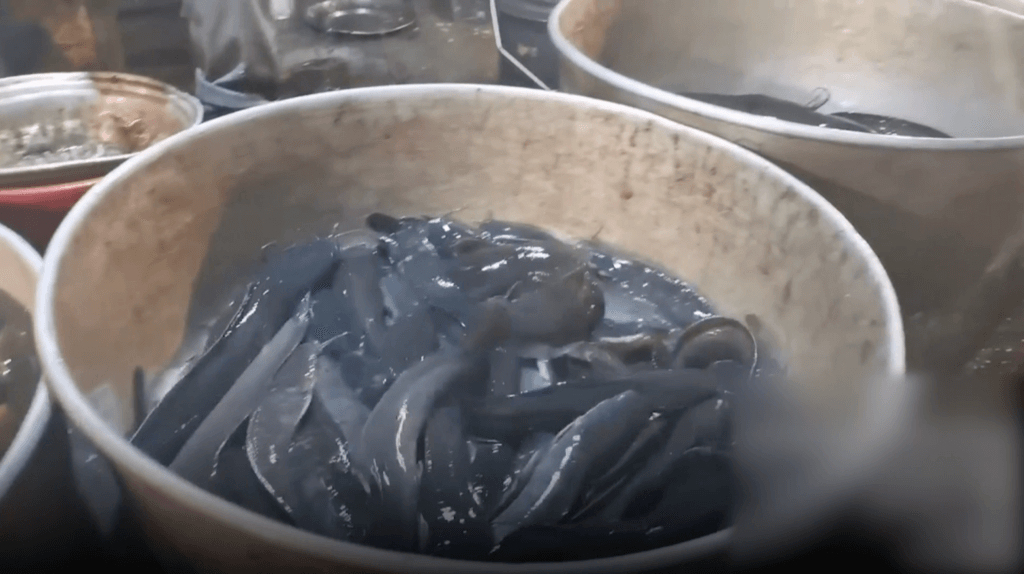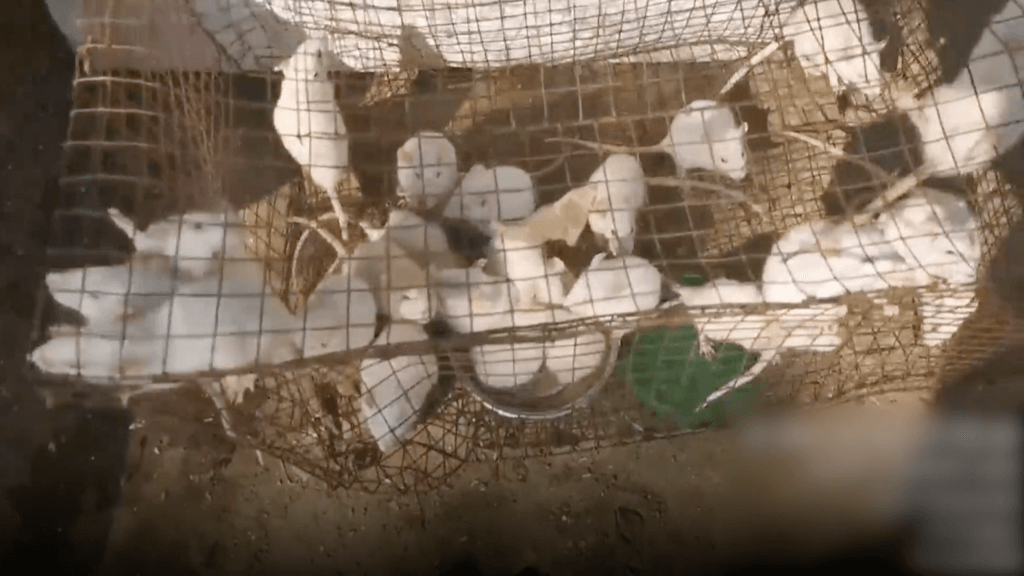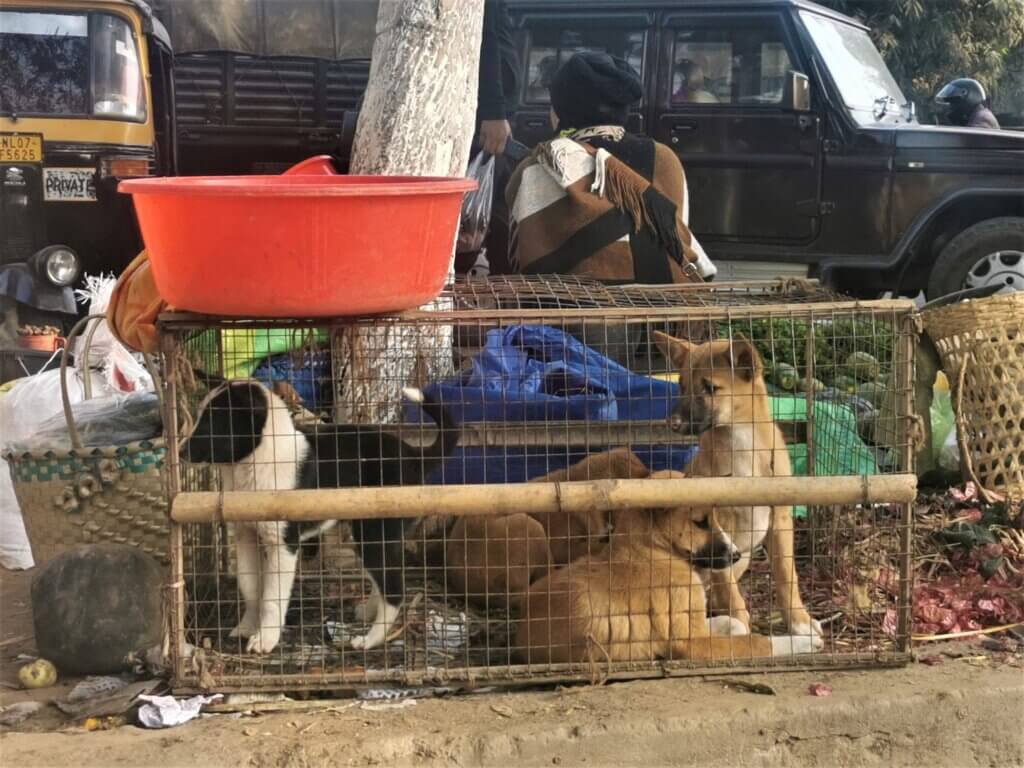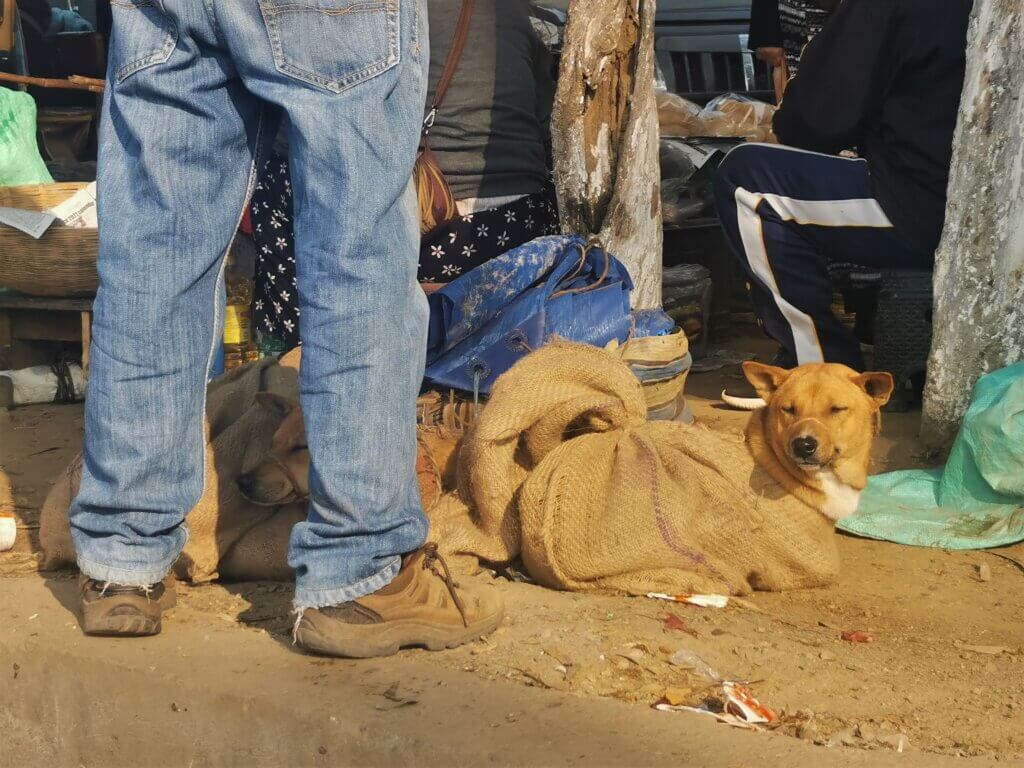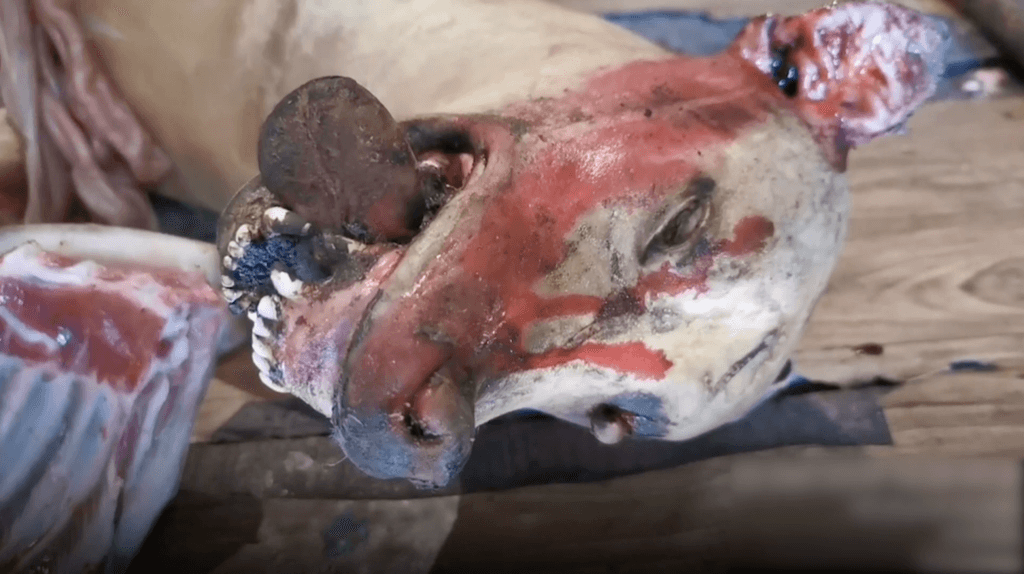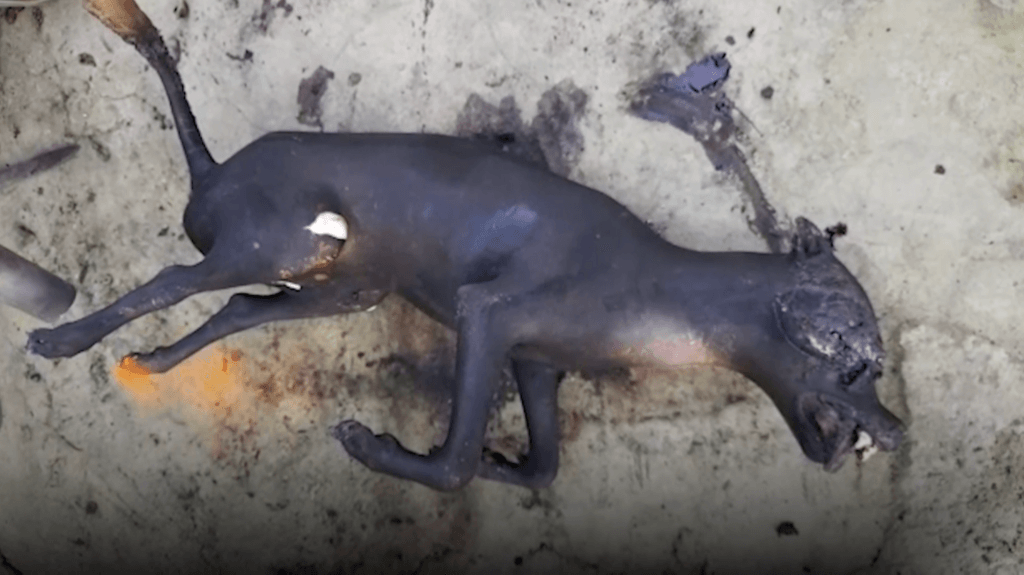BREAKING: India’s Illegal Wildlife and Dog-Meat Markets
Is Another Pandemic Right Around the Corner?
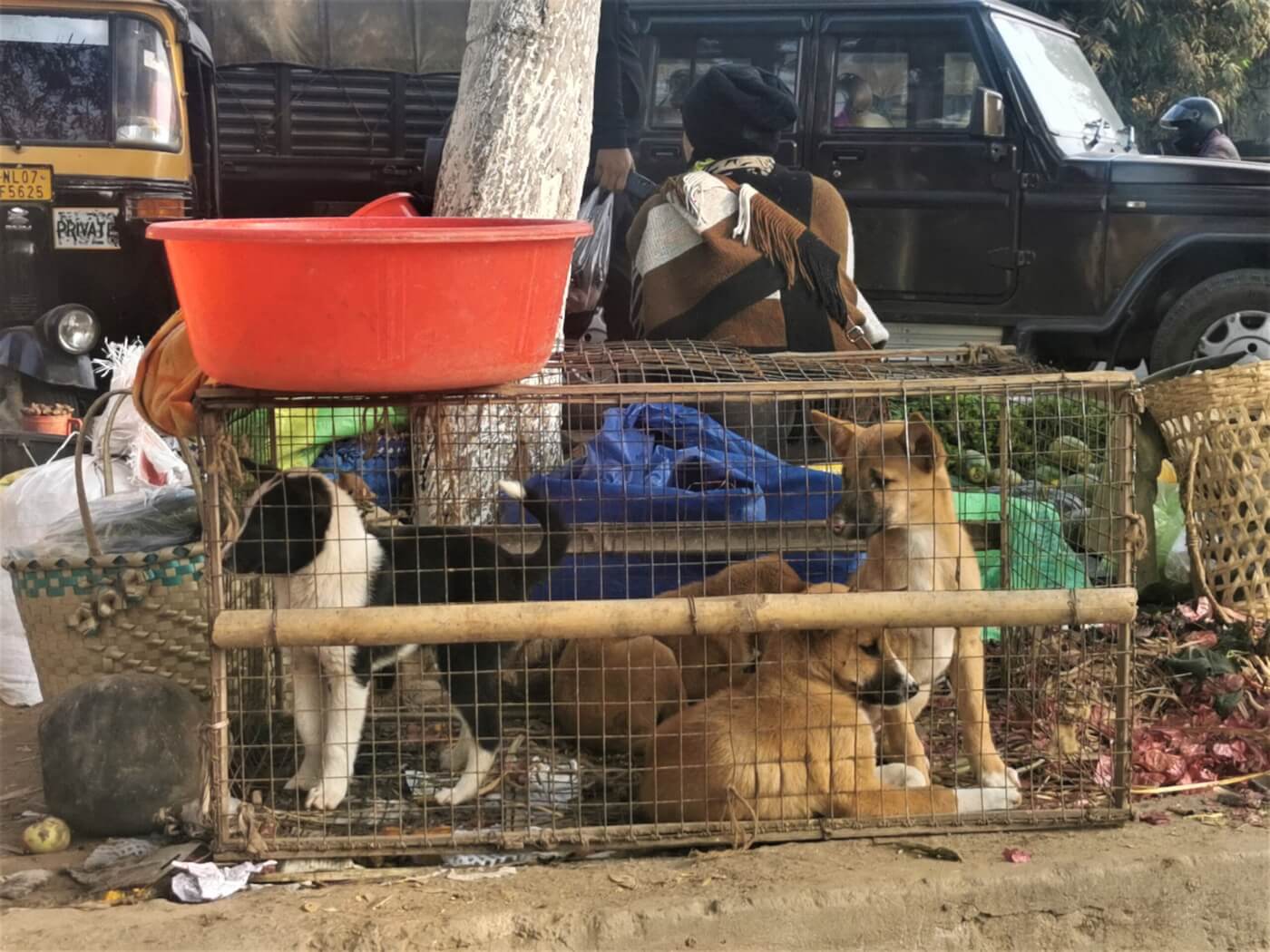
Dead dogs lying with their intestines draped over their bodies, live frogs stuffed into sealed plastic bags, a barehanded vendor holding up the decapitated head of a deer—all for sale as meat. A new PETA India investigation into wildlife markets in several states there reveals rampant violations of India’s animal protection laws. These markets are a major threat to the health of Indian residents and the world at large in the fight against zoonotic diseases like COVID-19.
Dogs and Other Animals Sold for Meat
At one market, the flesh of deer, wild boars, and frogs was illegally sold. Sellers and buyers handled the animal parts with their bare hands.
PETA India’s undercover investigator saw sellers hawking meat from illegally hunted deer at another location as well.
Workers at a different market handled living and dead animals with their bare hands, too. Here, dog meat, live frogs in plastic bags, pigeons, quails, and ducks were sold for food.
At another location, live eels jostled for space in small containers, frogs gasped for breath in plastic bags, mice scurried around frantically in cramped enclosures, worms were heaped on top of each other, and birds stuffed into wire cages struggled for space.
Puppies were also seen in cages, and dogs here were being sold for their flesh, too. Adult dogs’ mouths were tied shut, and they were restrained in gunnysacks.
Once killed, their inner organs were removed and their bodies charred for sale. As PETA India has urgently pointed out in its communication with Indian authorities, these sales are illegal, as dogs and animals protected under the country’s Wildlife Protection Act 1972 are not permitted to be killed for meat in India.
In one village, hunters took animals covered under wildlife protection laws to the local markets to be sold. Despite the law, one hunter claimed that there were no local restrictions on hunting.
Deer meat was also readily available at a market in another village.
Cruel, Filthy Markets Are Repeat Offenders
Poor conditions at these markets are deeply entrenched. In 2020, PETA India released video footage showing similarly appalling conditions:
- Men at a market in Delhi slit the throats of live chickens, skinned them, and handled their flesh, which was drenched in blood and guts, with their bare hands.
- Bags of struggling crabs and eels were for sale at a fish market.
- Dogs were killed and sold for meat.
- Sellers handled and sold the charred remains of wild animals, including monkeys, wild boars, porcupines, and deer.
Live-Animal Markets: Kill and Be Killed
Filthy conditions such as those found at these markets are ideal for spreading zoonotic diseases. Experts overwhelmingly believe that the COVID-19 pandemic first spread from wildlife to humans in a live-animal market in Wuhan, China. Bird flu, SARS, swine flu, and MERS are linked to raising and killing animals for food, too. Despite a massive death toll, world leaders calling for a ban on such markets, and the emergence of highly contagious variants, these markets and others like them are still conducting business as usual.
There’s no way to make live-animal markets safe—they must be shut down immediately for the sake of animals and humans alike.
PETA India and supporters are urging local health and environmental officials to close these cruel and dangerous operations immediately. And as for animal markets here in the U.S., we have work to do, too.
There is one decisive action that we can all take right now to help stop animals from suffering and to prevent the next global pandemic: Ditch meat, eggs, and dairy—go vegan!
Then, help us rid the entire world of live-animal markets—shutting down foreign ones isn’t good enough: To prevent more diseases like COVID-19, we must do more than crack down only in certain parts of the world. Every live-animal market must close, whether it sells deer in Delhi or birds in Brooklyn.
You Can Help!
Join PETA in urging the World Health Organization (WHO) to call for an end to deadly live-animal markets around the globe.
Please send polite comments to:
Dr. Tedros Adhanom Ghebreyesus
Director-General, World Health Organization
[email protected]
